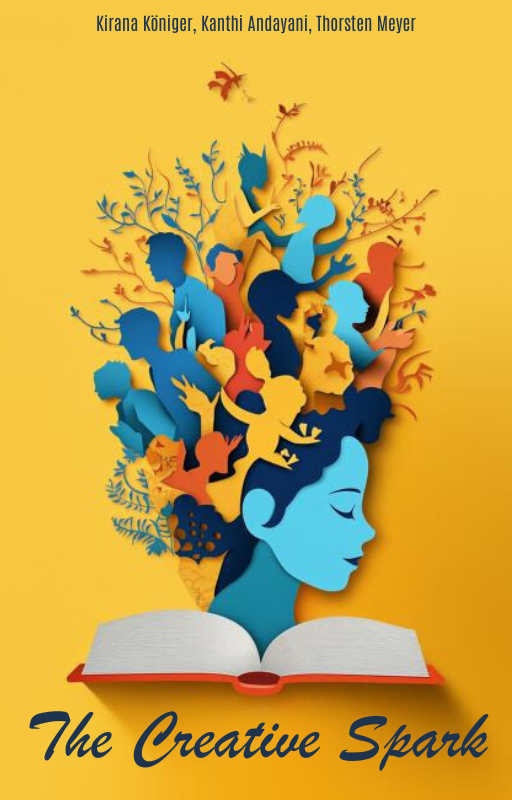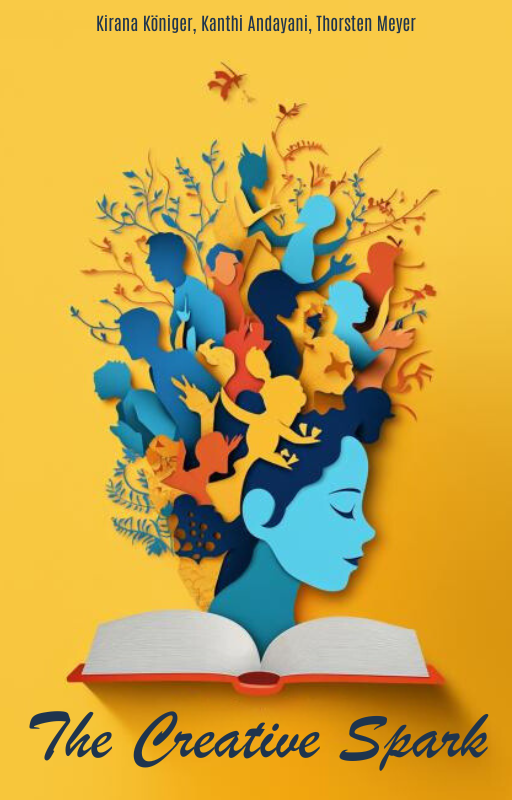Personal Growth
Tribalistic Behavior Exposed: Shocking Truths About Group Mentality
Shocking truths about tribalistic behavior reveal how group mentality can distort reality; discover what hidden biases may be shaping your interactions.

Tribalistic behavior shows how group mentality can strongly shape your perceptions and actions. You'll feel a powerful bond with your group, often sidelining outsiders. This ingroup favoritism leads to biased decisions and can escalate into conflict, especially in today's polarized environment. You might also find that groups often fall into groupthink, where consensus trumps critical thinking. This can create an illusion of invulnerability, making you overlook potential risks. Understanding these dynamics is essential, as it can foster empathy and open dialogue. There's a lot more to uncover about these behaviors and their implications on your interactions.
Key Takeaways
- Tribalism fosters ingroup favoritism, leading to biased resource allocation and marginalization of outsiders.
- Groupthink can result in irrational decision-making, as consensus takes precedence over critical evaluation.
- Social isolation from differing viewpoints can reinforce negative perceptions and foster outgroup derogation.
- Political polarization and structural inequalities deepen divisions within communities, threatening social cohesion.
- Engaging with opposing perspectives and fostering empathy can mitigate the impacts of tribal behavior.
Defining Tribalism and Its Roots

Tribalism, at its core, represents a powerful human tendency to form strong bonds with specific groups, often at the expense of outsiders. As social creatures, human beings naturally crave belonging and identity, driving you to affiliate with groups that reflect your values and interests. This psychological need often leads to ingroup favoritism, where you make decisions that prioritize your group's interests over those of outgroup members.
Research by Henri Tajfel illustrated how quickly you can form groups based on arbitrary criteria, highlighting the cognitive biases that emerge almost instantly. This favoritism manifests in how you allocate resources, often favoring your ingroup while derogating those from outside.
The roots of tribalism run deep, tied to fundamental needs for status and security within a community. As competition for resources intensifies, tribalism can escalate, leading to harmful behaviors and, in extreme cases, conflict. The current global political climate, characterized by increased focus on populism, further illustrates how tribalistic tendencies can shape national policies and international relations.
Recognizing these patterns in your own behavior can be essential. By understanding the dynamics of tribalism, you can foster a more inclusive mindset, ultimately mitigating the negative consequences that arise from prioritizing group over individual humanity.
The Psychology Behind Groupthink

When you're part of a cohesive group, the desire for harmony can sometimes cloud judgment, leading to a phenomenon known as groupthink. This psychological phenomenon occurs when cohesive groups prioritize consensus over critical evaluation, resulting in flawed decisions we make.
Key characteristics of groupthink include the suppression of dissenting opinions and collective rationalization, where group members convince themselves that their choices are infallible.
The human brain often seeks comfort in agreement, which can lead to an illusion of invulnerability. This overconfidence causes groups to underestimate risks and overlook warning signs, sometimes with catastrophic results, as seen in historical events like the Bay of Pigs invasion.
High group cohesiveness, along with structural faults like isolation from external viewpoints, increases the likelihood of groupthink.
To combat this issue, awareness of group dynamics is essential. Promoting open dialogue fosters an environment where diverse perspectives are valued, encouraging critical thinking.
Consequences of Tribal Behavior

Group dynamics often lead to tribal behavior that can have profound consequences on social interactions and decision-making processes. You might notice ingroup favoritism and outgroup derogation where resources are allocated preferentially to your group while harboring negative views of others. This can fuel political polarization, as seen with shifts in public beliefs, like the NFL's declining popularity among Republicans after political controversies.
The following table illustrates some key consequences of tribal behavior:
| Consequences | Description |
|---|---|
| Ingroup Favoritism | Preference for your group over outsiders |
| Outgroup Derogation | Negative perceptions and treatment of other groups |
| Groupthink | Consensus-driven decision-making, often irrational |
| Social Isolation | Severing ties with external support systems |
Tribal affiliations can create cohesive groups, yet they can also lead to societal divisions and conflicts. Trivial differences may escalate into major animosities, undermining open dialogue and cooperation across diverse communities. As tribal behavior persists, these consequences can create barriers that hinder progress and understanding in society. Additionally, the importance of clear communication during group conflicts can play a crucial role in mitigating these negative effects.
Strategies for Overcoming Division

The consequences of tribal behavior can feel overwhelming, but there are effective strategies to bridge divisions and foster understanding. Start by emphasizing individual identity over group identity; this helps you recognize personal traits and differences that transcend affiliations.
Engaging with opposing viewpoints is fundamental, as it promotes cognitive flexibility. Exposure to diverse perspectives encourages critical thinking and reduces the risk of groupthink.
Developing empathy is important too. By understanding the motivations behind differing beliefs through the theory of mind, you can facilitate more productive dialogues across divides.
Focus on building shared identities and collaborative efforts, as these initiatives greatly reduce polarization and promote social cohesion in diverse communities.
Lastly, commit to continuous learning and self-reflection. Challenge your own biases and remain open to evolving perspectives on tribalism and group dynamics. Additionally, consider incorporating mindfulness practices to enhance emotional regulation and reduce reactivity during discussions.
Future Implications of Tribalism

Tribalism's grip on society poses significant challenges for our future, as increasing political polarization and social isolation threaten to fragment communities. When you align your social identity strictly with a group of people, you risk limiting your exposure to diverse perspectives. This isolation can lead to irrational decision-making, as cohesive groups often fall victim to groupthink, overlooking critical evaluations and alternative viewpoints.
Moreover, structural inequalities based on race and socioeconomic status deepen these divisions, making it essential to address these disparities. The rise of consumer capitalism further segments individuals into niche groups, reinforcing tribal identities and hindering collaborative efforts for societal change.
To combat these implications of tribalism, we must promote empathy and open dialogue. Studies suggest that engaging with diverse experiences enhances cognitive flexibility, enabling you to think critically and reduce tribalistic behaviors.
Frequently Asked Questions
What Is a Tribalistic Mentality?
A tribalistic mentality is when you strongly identify with a specific group, placing its interests above those of outsiders.
This often leads to favoritism towards your group and hostility toward others. You might find yourself prioritizing group loyalty, shaping your beliefs and behaviors to fit.
This mentality can emerge from a deep-seated need for belonging and identity, often intensified by social influences and environments that promote extreme viewpoints and division.
What Is a Tribe Mindset?
A tribe mindset is when you identify closely with a specific group that shares your beliefs, values, or identity.
It often leads you to favor your group while viewing outsiders with suspicion or disdain. This "us versus them" mentality can influence your thoughts and behaviors considerably.
You might find yourself prioritizing group loyalty over individual judgment, which can create barriers to understanding and cooperation with others, ultimately affecting your relationships and perceptions of the world.
What Is Tribalism and Why Is It a Bad Thing?
You might think tribalism's harmless, but it can be quite damaging.
Tribalism occurs when you prioritize your group over others, leading to conflict and division. It breeds ingroup favoritism, where you favor your own, often at the expense of outsiders.
This mindset can foster political polarization, suppress dissenting opinions, and create echo chambers.
Ultimately, it can hinder critical thinking and understanding, making collaboration and societal harmony much harder to achieve.
What Is the Theory of Tribalism?
The theory of tribalism suggests that humans have an inherent tendency to form strong bonds within groups, prioritizing their interests over others.
You might notice this in social, political, or cultural contexts, where loyalty to your group can lead to favoritism and bias against outsiders.
This behavior can foster division and conflict, as it often results in irrational decision-making and a lack of empathy for those outside your group, hindering effective communication and collaboration.
Conclusion
As you reflect on the insidious nature of tribalism, consider what it means for your own beliefs and relationships. Can you spot the subtle cues of groupthink creeping into your life? What happens when you challenge the status quo? The choice is yours: remain in the comfort of conformity or venture into the uncertain territory of independent thought. The future of connection, understanding, and unity hangs in the balance, waiting for you to take the first step.
Say hello to Cypress, the soulful wordsmith behind the insightful articles at OurMindAndBody.com. Cypress is a gifted writer who weaves words with grace and precision, using language as a powerful tool to inspire, heal, and uplift the spirits of readers.
With a background in literature and a passion for personal growth, Cypress brings a unique perspective to the world of well-being and spirituality. Having experienced the transformative effects of meditation and yoga firsthand, Cypress is deeply connected to the essence of these practices and their potential to enrich lives.
Personal Growth
Are You a ‘Weak Person’? 5 Signs You Need to Know
Learn the five signs that may indicate weakness within you, and discover how recognizing them can unlock your path to true strength.

You might be a 'weak person' if you recognize these signs. Fear of failure often holds you back, making you avoid new challenges. If you struggle with commitment, that inconsistency can reveal deeper issues with self-discipline. Emotional instability may cause impulsive decisions, and if you find yourself constantly seeking validation from others, it undermines your self-worth. Additionally, if you avoid taking responsibility, you might be trapping yourself in a cycle of powerlessness. Understanding these patterns can be the first step toward personal strength, and there's much more to explore on how to empower yourself further.
Key Takeaways
- Fear of failure prevents you from taking risks, limiting personal growth and opportunities for success.
- Lack of commitment leads to inconsistency, revealing difficulty in overcoming minor obstacles and achieving goals.
- Emotional instability results in impulsive decisions and overwhelming reactions to minor setbacks, hindering personal accountability.
- A constant need for validation from others undermines your self-worth and creates feelings of inadequacy.
- Avoiding responsibility fosters a cycle of powerlessness, limiting personal growth and straining relationships with others.
Fear of Failure

Fear of failure is like a heavy anchor that can hold you back from reaching your full potential. When you let this fear take control, you might avoid risks and shy away from new experiences. This tendency often leads you to stick to familiar paths, causing stagnation and missed opportunities for growth.
You may find yourself paralyzed by the unknown, choosing safety over the rewarding challenges that could propel you forward. Instead of taking responsibility for your choices, you might start blaming others for your inaction. This blame game only reinforces your fear of failure, creating a comfort zone that feels safe but ultimately limits your chances for self-improvement and success.
Research shows that a significant percentage of people avoid taking action due to this emotional barrier, highlighting just how widespread this issue is.
Recognizing your fear of failure is the first step. Understanding its impact on your decision-making can motivate you to break free from the shackles it creates. By facing your fears, you can reclaim your potential and open doors to new opportunities.
Don't let fear define you—embrace the challenges that come your way.
Lack of Commitment

Commitment is essential for achieving personal and professional goals, yet many struggle to maintain it. If you notice a lack of commitment in your life, it could point to deeper issues with self-discipline. You might find yourself making promises but failing to follow through. This inconsistency often reveals a weak-minded person who gives up easily when faced with small obstacles.
When you encounter challenges, do you abandon your plans at the first sign of difficulty? This tendency not only hinders your growth but also leads to missed opportunities. Instead of holding yourself accountable, you may get distracted by excuses, allowing fear of failure to dictate your actions.
Your inability to stay committed to long-term goals may reflect an aversion to risks, resulting in stagnation both personally and professionally. A lack of dedication keeps you from cultivating the resilience necessary to overcome challenges.
Recognizing these signs is the first step towards growth. If you want to break free from this cycle, it's time to reflect on your commitment levels and take active steps to enhance your discipline and dedication.
Emotional Instability

When you're grappling with a lack of commitment, it often leads to emotional instability that can further complicate your journey. You might find yourself making impulsive decisions based on strong emotional reactions rather than logical thought, which shows a lack of control over your feelings.
These mood swings can leave you struggling to maintain your composure during stressful situations, ultimately impacting your relationships and decision-making abilities.
Minor setbacks may trigger an overwhelming response, like anger or frustration, underscoring a fragile emotional state that undermines your resilience. Instead of taking accountability for your actions, you might blame others for your failures, stunting your personal growth.
This pattern can keep you stuck in a cycle of instability, making it hard to regain control of your life. To overcome this emotional instability, it's essential to cultivate emotional resilience and employ effective coping strategies. Learning to regulate your emotions and respond thoughtfully can lead to greater stability and success in the long term. Additionally, practicing visualization techniques can help you align with a more positive emotional state, fostering resilience and clarity.
Need for Validation

The constant craving for validation can feel like a heavy weight, dragging you down and obscuring your sense of self. If you constantly seek approval or praise from others, it's a clear sign that you might've a need to find your worth through external sources. This reliance often stems from deep-seated insecurities that can diminish your self-esteem, making you feel inadequate when you don't receive the validation you crave.
You might notice that this behavior creates a cycle of comparison, where you measure your worth against others. Such comparisons can exacerbate feelings of inadequacy, leading to emotional exhaustion for both you and those around you. They may feel pressured to reassure you, which can strain relationships.
Recognizing these patterns is essential; they're often signs of a weak-minded approach to self-acceptance.
Avoiding Responsibility

Often, people sidestep responsibility by blaming external factors or others for their shortcomings. When you avoid taking responsibility, you hinder your personal growth and accountability. This habit can lead to repeated mistakes since you're not reflecting on your actions or learning from them. Instead of feeling empowered, you may find yourself trapped in a cycle of powerlessness, believing you have no control over your circumstances.
Failing to take ownership can also strain your relationships. Others may view you as unreliable, which can damage trust and connection.
On the other hand, when you embrace responsibility, you become mentally strong. Taking ownership of your actions fosters resilience and encourages a proactive approach to challenges. Additionally, maintaining emotional alignment during conflicts can enhance your ability to navigate difficult situations effectively.
Recognizing this pattern is the first step toward change. Start by acknowledging your role in situations and making an effort to learn from your experiences. By doing so, you can break free from the cycle of avoidance and empower yourself to face life's challenges head-on.
Frequently Asked Questions
How Do I Know if I'm a Weak Person?
To determine if you're a weak person, reflect on how you handle challenges and setbacks.
Do you often avoid risks or stick to your comfort zone? Notice if you make excuses instead of following through on commitments.
Evaluate your emotional responses during tough times—do you stay composed or act impulsively?
Consider whether you seek constant validation from others or blame them for your failures.
Honest self-reflection can help you identify areas for personal growth.
What Are Signs of Weakness in a Person?
Signs of weakness in a person often include a constant fear of failure that keeps you from trying new things, leading to stagnation.
You might struggle to commit, breaking promises easily when faced with challenges.
If your emotions dictate your actions, you may make impulsive decisions and struggle under pressure.
Dependence on others for validation can signal low self-belief, while avoiding responsibility can prevent you from growing and learning from experiences.
How Does a Weak Person Act?
A weak person often avoids taking risks, sticking to their comfort zone out of fear. They may struggle to follow through on commitments, letting small obstacles derail their plans.
You might notice emotional instability, reacting impulsively to minor challenges. They often seek constant validation from others, showing insecurity in their self-belief.
Additionally, they tend to blame others for their failures, missing out on valuable opportunities for personal growth and learning.
How Do I Know I Am Weak?
You might think you're the world's biggest coward if you constantly dodge challenges and stick to your comfy bubble.
If you promise the moon but crumble at the first bump, you're not exactly a superhero.
Can't handle stress without losing it? That's another red flag.
Relying on others' praise to feel good? Ouch!
And if you blame everyone else for your mess-ups, it's time to face the music and take a hard look at yourself.
Conclusion
If you recognize these signs in yourself, it's time to take the reins and steer your life in a new direction. You're not defined by your weaknesses; they're just clouds that can clear to reveal a brighter sky. Embrace growth, seek support, and cultivate resilience. Remember, everyone has their battles, but facing them head-on transforms you from a flickering candle into a blazing beacon. Take that first step, and watch your strength unfold.
Say hello to Cypress, the soulful wordsmith behind the insightful articles at OurMindAndBody.com. Cypress is a gifted writer who weaves words with grace and precision, using language as a powerful tool to inspire, heal, and uplift the spirits of readers.
With a background in literature and a passion for personal growth, Cypress brings a unique perspective to the world of well-being and spirituality. Having experienced the transformative effects of meditation and yoga firsthand, Cypress is deeply connected to the essence of these practices and their potential to enrich lives.
Personal Growth
What Motivates People? Scientists Are Speechless at These Findings
Knowing how your thoughts shape outcomes can transform motivation, but what groundbreaking discoveries have scientists made that leave them speechless?

What motivates you goes beyond basic needs; it involves your consciousness and intentions. Recent research shows that your thoughts can influence outcomes, even in living systems like plants. This autonomy and a sense of purpose align with personal values, increasing your engagement and commitment. Positive emotions play a crucial role too, boosting your overall productivity. Scientists are amazed by how consciousness may affect not just you but also your environment and technology. Understanding these connections can enhance your motivation in profound ways. Curious about how these findings reshape our understanding? There's much more to uncover!
Key Takeaways
- Autonomy enhances intrinsic motivation, leading individuals to engage more deeply in tasks they choose themselves.
- Competence boosts confidence and motivation as individuals develop skills and achieve mastery in their pursuits.
- A sense of purpose aligns tasks with personal values, fostering commitment and driving motivation.
- Supportive social influences from peers can amplify motivation, creating a positive feedback loop for engagement.
- Positive emotional states have been shown to correlate with increased effort and commitment, enhancing overall productivity.
Understanding Consciousness

Understanding consciousness invites you to explore a profound concept that may extend beyond mere brain function. You might find it fascinating that consciousness could be a fundamental aspect of the physical world, suggesting something much deeper than just neural activity.
Experiments have shown that conscious intention can influence random number generators, hinting at a tangible connection between your awareness and physical reality.
Dr. Emoto's research reveals how human emotions can affect the crystalline structure of water, further implying a link between consciousness and the physical properties of matter. This suggests that your thoughts and feelings aren't just internal experiences; they could actively shape the world around you.
Additionally, studies from the PEAR lab show that a house plant's exposure to light can be swayed by random number generators, pointing to the idea that consciousness might play a role in living systems and their development.
Emerging theories even propose a non-localized understanding of consciousness, indicating an interconnectedness among all entities that transcends the boundaries of space and time. This invites you to reconsider your understanding of consciousness and its influence on the universe.
The Role of Intention

Intention shapes your reality in ways that might surprise you. Research shows that your focused thoughts can directly influence outcomes around you, challenging the notion that you're merely a passive observer in life.
Here are some intriguing findings:
- Human intention can affect random number generators.
- Positive emotions lead to beautifully ordered water crystals.
- Focused thought can enhance plant growth through manipulated light.
- Your thoughts might influence environmental factors.
- Conscious intention plays an essential role in shaping experiences.
Studies by Dr. John at Princeton reveal that intentions can shift random number generator results, suggesting that your consciousness interacts with physical reality.
Dr. Emoto's work highlights how water's crystalline structure changes with your emotions, indicating that your feelings matter.
Additionally, the "plant RNG" experiment at the PEAR lab showed that your intention could positively impact a plant's growth by controlling light through randomness.
These insights underscore the power of intention, demonstrating that your conscious focus can affect not just your experiences but also broader physical phenomena.
Consciousness and Technology

The fascinating interplay between consciousness and technology reveals how our thoughts can shape not just our lives but also the devices we interact with daily. Take the mind lamp prototype, for instance. It utilizes a random number generator, allowing you to influence its color changes through your thoughts. This innovative concept demonstrates how technology can respond to conscious intention.
Random number generators convert quantum randomness into binary, highlighting the remarkable ability of devices to interact with your consciousness. Dr. John's studies at Princeton further underscore this connection, showing that your intention can greatly affect the outcomes of these generators. You might notice subtle shifts toward your intended results, suggesting your consciousness can influence physical reality.
The mind lamp experiment challenges traditional views of causality and control. It raises intriguing questions about how consciousness may engage with technology in real-time.
These findings not only indicate that consciousness exists independently of the brain but also showcase its potential to influence technological systems in ways we've only begun to explore. As you contemplate these possibilities, you may find yourself reconsidering the limits of your mind and the devices around you.
Water's Remarkable Response

Water exhibits a remarkable ability to respond to human emotions and intentions, as demonstrated by Dr. Emoto's groundbreaking experiments. His work revealed that water's crystalline structures are influenced by the feelings we project, creating a fascinating connection between consciousness and matter.
When you think about it, the implications are profound:
- Positive emotions create beautiful, ordered crystals.
- Negative emotions result in chaotic, disordered formations.
- Words, music, and images can shape water's patterns.
- Water acts as a medium for universal consciousness.
- The structure of water may influence life itself.
In controlled conditions, Dr. Emoto's findings showed consistent variations in crystallization based on different energetic influences. This suggests that your intentions can alter water's physical properties, making it a unique conduit for reflecting your emotional state.
Since water comprises a significant portion of living organisms, understanding its response to consciousness could reveal new pathways to explore the intricate relationship between mind and matter.
The next time you sip a glass of water, consider the unseen energy you may be imparting, and how it might resonate with the very essence of life.
Living Systems and Consciousness

You might be surprised to learn that consciousness isn't just limited to humans; even plants appear to respond to intention in fascinating ways.
Research suggests that your thoughts and feelings can influence not only water but also the growth patterns of plants, hinting at a deeper connection within living systems.
This interplay raises intriguing questions about how your consciousness could shape the world around you.
Consciousness in Plant Growth
Some researchers have begun to explore the fascinating idea that consciousness might influence plant growth in ways we never thought possible. Unpublished experiments at the PEAR lab revealed that a house plant's growth could be swayed by a random number generator, which directed light toward the plant more often than other areas. This suggests consciousness might impact probabilities and outcomes in the physical world, especially in living systems.
Here are some intriguing points to reflect on:
- Plants may have a form of awareness that enables them to respond to environmental stimuli.
- Similar to Dr. Emoto's water crystal experiments, intention could affect biological processes.
- Consciousness might interact with the natural world, shaping growth and development.
- These findings challenge traditional views of plant behavior and intelligence.
- Understanding plant consciousness could redefine our relationship with nature.
Aromatherapy, which utilizes essential oils to promote emotional well-being, may also highlight the interconnectedness of all living organisms and their responses to environmental influences.
These studies hint at a deeper connection between living organisms and the broader universal consciousness field, opening doors to a revolutionary understanding of life itself.
If consciousness truly influences plant growth, what else might it affect? The answers could change how we perceive all forms of life.
Quantum Influence on Life
The intriguing relationship between consciousness and living systems extends into the domain of quantum mechanics, where the fabric of reality itself may be influenced by our thoughts and intentions. Dr. John's studies at Princeton demonstrated that human intention can greatly impact the outcomes of random number generators. This suggests a profound connection between consciousness and physical reality.
Similarly, Dr. Emoto's experiments revealed that water's crystalline structures change in response to human emotions, indicating that our consciousness can alter the physical properties of living systems.
In the "plant RNG" experiment at the PEAR lab, researchers found that a house plant's growth improved when light was controlled by a random number generator, hinting at consciousness's potential role in influencing probabilities in living organisms. Collectively, these findings imply that consciousness isn't merely a byproduct of biological processes but may play a fundamental role in the evolution and functioning of life itself.
Emerging research points toward a non-localized understanding of consciousness, suggesting an interconnectedness among all entities that transcends space and time. This perspective could radically reshape your understanding of life and its intricate connections, inviting you to explore the deeper influences of your own consciousness.
Implications for Human Motivation

Often, understanding the implications for human motivation can greatly enhance how we approach tasks and goals.
Recognizing what drives you and others can lead to more effective strategies for achieving success and fulfillment.
- Autonomy: Cultivating a sense of independence boosts intrinsic motivation.
- Competence: Building skills and confidence encourages sustained engagement.
- Purpose: Connecting tasks to personal values enhances motivation.
- Social Influence: Surrounding yourself with supportive peers can amplify your drive.
- Emotional States: Maintaining positive emotions fosters higher levels of effort and commitment.
- Data-driven insights can also inform strategies for motivation and engagement in various contexts, including personalized learning.
The Future of Consciousness Research

As researchers dive deeper into the mysteries of consciousness, new findings are challenging conventional beliefs about its origins and nature. You might find it fascinating that emerging studies suggest consciousness isn't solely generated by the brain. This indicates a significant need for a paradigm shift in how we perceive consciousness.
For instance, experiments by Dr. John at Princeton reveal that human intention can influence random number generators, hinting at a profound connection between consciousness and physical reality.
Moreover, Dr. Emoto's water crystallization work shows that emotional intent can alter physical structures, suggesting that our emotional states might tap into a universal consciousness.
Then there's the "plant RNG" experiment at the PEAR lab, which indicates that even living systems, like plants, respond to conscious influence. Light exposure patterns point to a consciousness-related interaction.
Frequently Asked Questions
What Is the Motivation of Scientists?
Scientists are driven by a deep curiosity to understand the complexities of the universe.
You'll find that their motivation often stems from a desire to uncover truths about consciousness and its relationship with the physical world.
Collaborating with peers ignites new ideas, fueling their passion for innovation.
As they explore practical applications of their research, like the impact of intention on matter, they remain dedicated to advancing knowledge and improving lives through their discoveries.
What Motivates Scientists to Pursue Research?
When you think about what motivates scientists to pursue research, you'll find several key factors. Their innate curiosity drives them to explore the unknown and challenge existing knowledge.
You'll notice that the potential for practical applications and technological advancements fuels their passion.
Collaborating with peers creates a supportive environment, while the opportunity to contribute to society and gain recognition further inspires them to push the boundaries of science and make a difference.
Why Do Most Scientist Refrain From Saying Their Research Has Proved Anything?
Imagine a detective piecing together clues. That's how scientists work; they build evidence gradually.
You'll notice they often avoid claiming their research proves anything definitively. This cautious approach stems from the understanding that knowledge is always evolving.
They focus on replicability and peer review, ensuring findings can withstand scrutiny. By embracing uncertainty, they foster a deeper exploration of truth rather than settling for absolutes, keeping the door open for future discoveries.
What Motivates Scientists to Continue Exploring and Discovering Despite Many Challenges?
You're motivated by a deep-rooted curiosity to uncover the universe's secrets. The thrill of discovery fuels your passion, pushing you to tackle complex phenomena despite challenges.
Collaborating with peers sparks fresh ideas, enhancing your drive. You find inspiration in profound findings, like the impact of emotions on water crystals, which reignites your dedication.
The potential for practical applications keeps you engaged, as you seek to intertwine consciousness with technology for a better future.
Conclusion
In exploring the depths of consciousness and motivation, you can't help but wonder: what if our intentions hold more power than we ever imagined? As scientists uncover the intricate connections between living systems, technology, and our conscious experiences, we stand on the brink of a new understanding of what drives us. Embracing these findings could revolutionize how we perceive ourselves and each other, paving the way for a future where consciousness and motivation intertwine in profound ways.
Say hello to Cypress, the soulful wordsmith behind the insightful articles at OurMindAndBody.com. Cypress is a gifted writer who weaves words with grace and precision, using language as a powerful tool to inspire, heal, and uplift the spirits of readers.
With a background in literature and a passion for personal growth, Cypress brings a unique perspective to the world of well-being and spirituality. Having experienced the transformative effects of meditation and yoga firsthand, Cypress is deeply connected to the essence of these practices and their potential to enrich lives.
Personal Growth
Book Review: “The Creative Spark: Unleashing Your Inner Artist”

Rediscovering Creativity in the Digital Age
In a world where digital distractions often overshadow our creative instincts, “The Creative Spark: Unleashing Your Inner Artist” emerges as a timely and empowering guide. Authored by Kirana Königer, Kanthi Andayani, and Thorsten Meyer, this book provides a comprehensive and accessible approach to reigniting the creative flame within each of us.
A Global Tapestry of Creative Wisdom
The authors draw on their diverse backgrounds—Indonesian roots, European influences, and global experiences—to weave a rich tapestry of creative insights. This multicultural perspective is not just a backdrop but the foundation of the book’s philosophy, which sees creativity as a universal language that transcends cultural and geographical boundaries.

Expanding the Boundaries of Creativity
“The Creative Spark” encourages readers to rethink creativity, moving beyond the traditional confines of the arts. The authors argue convincingly that creativity is a fundamental life skill, essential for problem-solving, personal growth, and professional success across all domains.
The Science of Creativity
Anchored in scientific research, the book explores:
- The neurological foundations of creativity
- The roles of different brain regions in creative thinking
- The impact of neuroplasticity on the development of creative skills
- How environment and lifestyle choices affect creative potential
Practical Exercises for Creative Development
Each chapter offers a variety of hands-on exercises designed to nurture creativity across different fields:
- Writing prompts to spark the imagination of aspiring authors
- Visual challenges for artists and designers
- Culinary experiments for food enthusiasts
- Mindfulness practices to enhance creative awareness
- Cross-disciplinary projects that blend multiple forms of artistic expression
Overcoming Creative Challenges
The book provides practical strategies for overcoming common obstacles in the creative process, including:
- Breaking through creative blocks and periods of stagnation
- Overcoming self-doubt and imposter syndrome
- Managing perfectionism and the fear of failure
- Balancing creative pursuits with everyday responsibilities
Creativity in the Digital Era
The authors thoughtfully examine how technology can both enhance and hinder creativity, discussing:
- The potential of digital tools to support creative processes
- Balancing digital and analog approaches to creativity
- Leveraging social media to share and promote creative work
- Addressing ethical considerations in the age of AI-generated art
A Journey of Self-Discovery
Throughout the book, the authors share personal stories from their own creative journeys, adding depth and relatability to the content. Readers are invited to embark on their own journey of self-discovery, guided by reflective questions and exercises designed to help uncover their unique creative strengths.
Critical Analysis
Strengths:
- A broad and inclusive approach that extends beyond traditional artistic boundaries
- A multicultural perspective offering a wealth of global insights
- A strong scientific foundation combined with practical applications
- An accessible tone that makes creativity approachable for all readers
Considerations:
- The broad scope of topics may be overwhelming for some readers
- Certain cultural references may resonate differently depending on the audience
- Some advanced readers may find familiar concepts, though they are presented with fresh insights
Conclusion: A Guide to Creative Renewal
“The Creative Spark: Unleashing Your Inner Artist” is more than just a guide to artistic expression—it’s a blueprint for living a more imaginative and fulfilling life. By redefining creativity as a core human trait, the authors offer a work that has the potential to transform not just how readers approach art, but how they approach life itself.
Rating: 4.85/5 stars
Highly recommended for its inclusive approach, scientific grounding, and transformative potential, “The Creative Spark” stands out as a valuable resource for anyone looking to reignite their creative passions and embrace a more inspired way of living.
Meet Nadi, the soulful writer and explorer of inner realms who graces OurMindAndBody.com with her profound insights and heartfelt wisdom. With a profound passion for mindfulness, meditation, and spiritual growth, Nadi weaves words that touch the hearts and minds of readers, leaving a lasting impact on their well-being journey.
Rooted in a background of philosophy and psychology, Nadi’s curiosity about the human mind and the mysteries of the soul led her on a transformative path of self-discovery. Drawn to the transformative power of mindfulness and meditation, she embarked on a quest to understand the intricacies of these practices, not only for her own growth but also to inspire others to embark on their own inner journeys.
-

 Angel Numbers1 month ago
Angel Numbers1 month agoHow to Explain Angel Numbers to Friends and Family
-

 Spirituality1 week ago
Spirituality1 week agoFlower of Life Meaning Exposed: This Ancient Symbol Will Change Everything!
-

 Spirituality6 days ago
Spirituality6 days agoEgyptian Eye Meaning: You’ll Never Look at This Symbol the Same Way Again
-

 Spirituality4 days ago
Spirituality4 days agoMetatron’s Cube Meaning: Unlock the Secret Power Within!
-

 Spirituality1 week ago
Spirituality1 week agoThe Eye of Ra Meaning That Will BLOW Your Mind!
-

 Spirituality1 week ago
Spirituality1 week agoEye of Horus Vs Eye of Ra: the Astonishing Truth Finally Revealed!
-

 Spirituality1 week ago
Spirituality1 week agoEye of Ra Vs Eye of Horus: Why Everyone Is Suddenly Talking About It
-

 Inspiration7 days ago
Inspiration7 days agoGood Vibes Meaning: How One Simple Shift Can Transform Your Life














